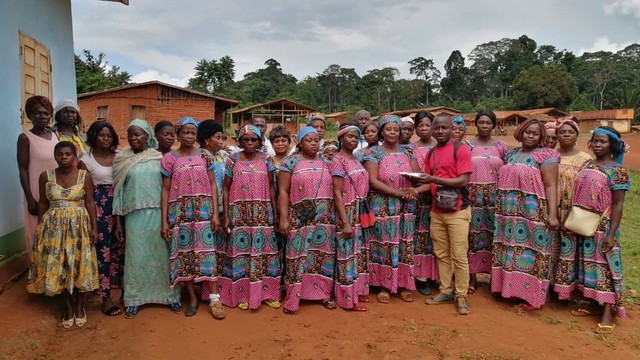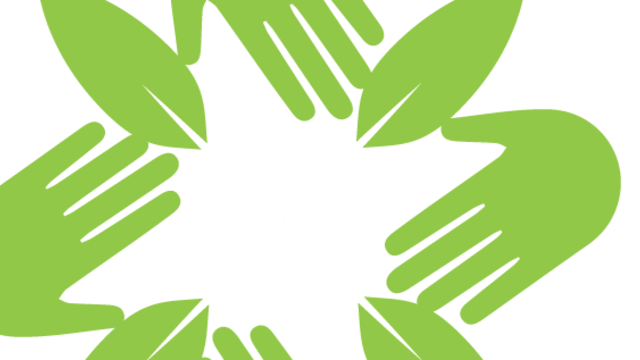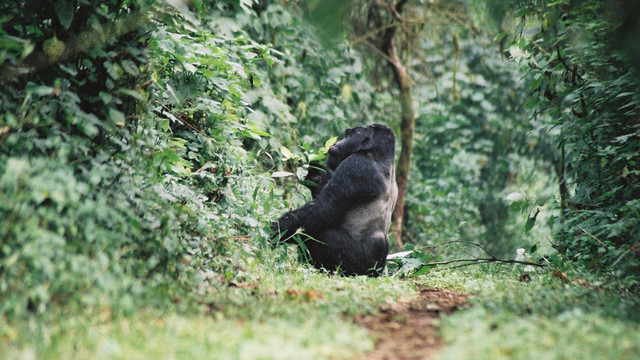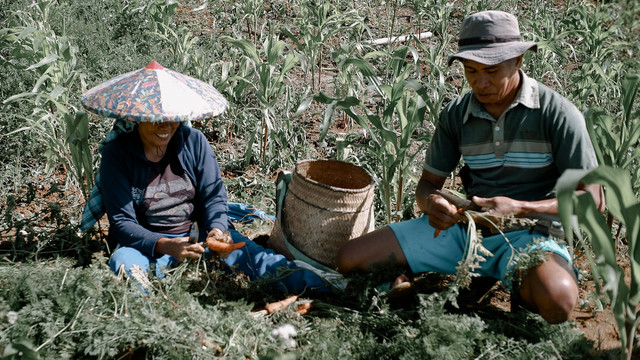Using learning partnerships to support change
IIED facilitiates a number of learning partnerships as a way of generating dialogue, encouraging joint learning and agreeing approaches for positive development outcomes.

IIED's Susannah Fisher and David Dodman (top, centre) talk to stakeholders on a social learning project in Kenya (Photo: IIED)
Learning partnerships consist of groups of stakeholders that reflect and jointly generate evidence about a particular set of problems.
These processes can generate a community of practice to work on an issue, and also support the improvement of policy and practice through ongoing reflection and application of evidence.
We support partnership learning through projects that facilitate learning dialogues for particular sectors, by developing online learning platforms for specific communities of practice, and by undertaking research on how joint learning processes can contribute towards positive development outcomes.
Our approach
Our approach to learning partnerships involves a set of key principles. These are:
- Learning for change: Using an approach of co-creating knowledge, bringing actors together and creating spaces to support social change in different contexts
- Appreciative inquiry, which uses positive stories to support effective change. This helps to address the challenges of a range of incentives for learning and monitoring performance, and builds shared commitment to findings and their relevance
- Research inputs structured around the learning process: information that is focused on specific communities' needs and stresses the importance of ownership and collaboration. This facilitates real-time feedback and learning loops for further evidence generation, and
- Strategic communication to ensure ideas are targeted for key audiences and well communicated to those within and beyond the learning partnership.
A partnership or project may focus particularly on one of these dimensions, or may incorporate elements of all four. In all cases our aims are to improve practice – whether that is at the local or national level.
Supporting participation
Through these learning processes we seek to engage and support all stakeholders so that they can participate equally, as much as is possible.
The process is designed to build shared understanding of the different perspectives and experiences of the members of the partnership and of their insights into the challenges and solutions at hand.
With local partners we co-generate evidence on key dimensions of the issues and facilitate iterative reflection on this evidence in a repeated and structured way. This helps to improve decisions and evidence as time goes on, integrating more examples from practice and encouraging wider and deeper reflection.
Sometimes it is necessary to challenge institutional practices to make sure they support learning and integrating insights from the evidence – and the partnership can reflect together as to how norms, policies and practice need to change to allow change at different scales. Some examples of learning partnerships and work on learning at IIED are:
Irish Aid Climate Change and Development Learning Platform
Irish Aid has made a policy commitment to put climate change at the centre of their development programming (PDF). To deliver this, Irish Aid will use evidence collation, shared learning and country mission strategy development. IIED is providing technical support to enable this integration across different sectors and in all of Irish Aid's key partner countries. This includes:
- Developing a web-based portal for sharing experience and knowledge
- Supporting capacity development through training and the provision of learning resources
- Generating evidence through retrospective, real-time and prospective case studies, and
- Supporting country missions at critical points of the mission strategy development, implementation and review cycle.
Climate Change and Social Learning Initiative
We have identified social learning as an approach that has the potential to improve the quality of stakeholder participation in, and uptake of, research.
That is why, together with partners, we've developed the Climate Change and Social Learning (CCSL) initiative – in order to explore and build on this potential.
Using social learning to address climate uncertainties
IIED is examining how social learning can be used to address the uncertainties of climate change and its likely impacts.
Flexible, process-based approaches such as social learning can help decision makers and communities engage with complex climate information, understand and manage uncertainty, and work towards developing effective actions for climate resilience.
Forest learning groups
The Forest Governance Learning Group aims to connect forest-dependent people who are marginalised from forest governance with those who control it. It is an informal alliance of 10 in-country groups of partners in Cameroon, Ghana, India, Indonesia, Malawi, Mozambique, South Africa, Tanzania, Uganda and Vietnam that carry out research, capacity building and advocacy work.
Through research, dialogue and joint action, the China-Africa Forest Governance project aims to contribute to improving forest governance, by promoting sustainable and pro-poor Chinese trade and investment in Africa's forests. The project uses evidence to build capacity and influence the policy and practice of investors and governments in China, Cameroon, Democratic Republic of Congo, Mozambique and Uganda. Multi-stakeholder dialogue has been a critical tool in delivering change.
Forest Connect is an international knowledge network for agencies that supports locally-controlled forest enterprises. It aims to reduce poverty and maintain forest landscapes by better linking such enterprises, not only to each other, but also to markets, financial and business support services, and to decision makers, policymakers and policy processes.
Poverty and Conservation Learning Group (PCLG)
The Poverty and Conservation Learning Group is an international network of conservation and development organisations that promotes learning on the linkages between biodiversity conservation and poverty reduction in order to improve policy and practice. There are also national chapters in Uganda, Cameroon and the Democratic Republic of Congo.
Urban Crises Learning Fund
Urban areas are increasingly the sites of humanitarian crises, from natural disasters to conflict and displacement. Through the Urban Crises Learning Fund, a programme of research and documentation, workshops, and development of tools, IIED is supporting shared learning across humanitarian actors and other urban stakeholders.
The initiative aims to inform policy and practice towards more effective response to urban crises by humanitarian and urban actors.



